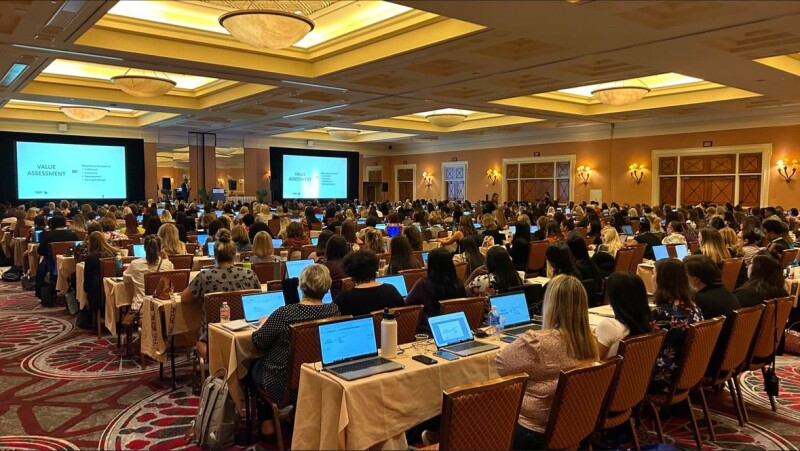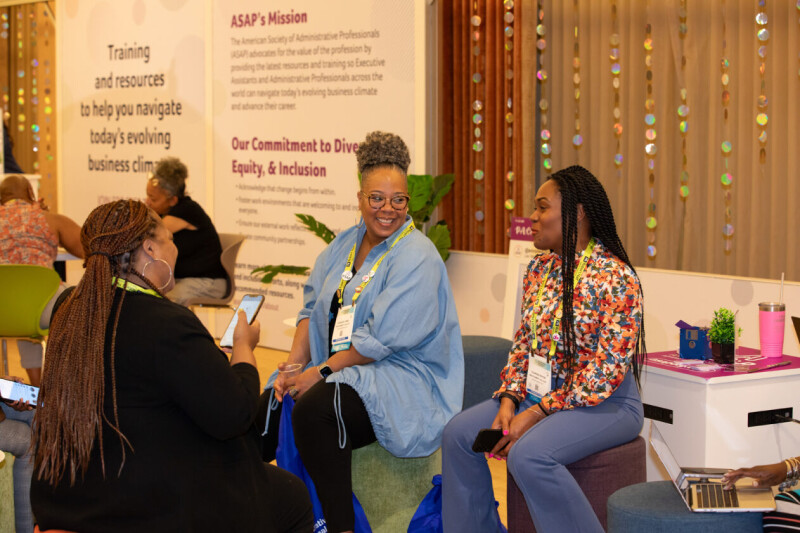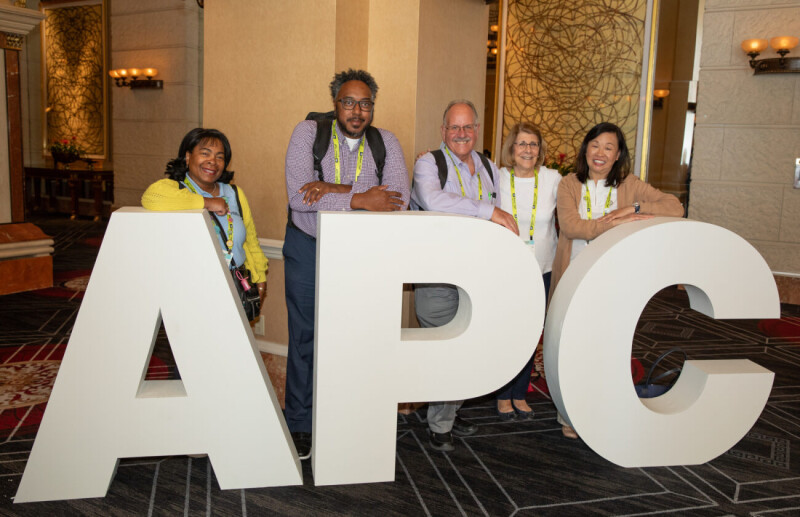Wondering how to ask for professional development funding from your boss or organization, whether it’s for a professional membership, course, or in-person training event like EA Ignite (EAI) or the Administrative Professionals Conference (APC)?
Our team attended SHRM24, the world’s largest HR conference, and spoke to executives, HR, and administrative professionals for The Admin Edge podcast about what admins today need from HR and leadership to advance and thrive in their careers. One person we talked to was Rachel Rice, Director of Administrative Coordination at the Corporation for Supportive Housing in Chicago, and she shared how she was able to get buy-in for her team to attend APC.
Check out executive assistant Garnet Valliere’s interview with Rachel below.
———-
Rachel Rice: I work with the Corporation for Supportive Housing here in Chicago. We provide training, lending, and technical assistance to the providers of supportive housing. I have the awesome privilege of leading our administrative coordination department. The role of my team is to serve as a business partner between our program, HR, IT, and finance departments.
Garnet Valliere: That’s fantastic. And it sounds like some of your team is headed to APC?
They are and we are so excited!

That’s excellent. What drove the decision to have your admins go and get the development that they need, and what kinds of skills are you looking for them to come back with?
I’ll make a long story short. Four years ago my department never existed at our organization. There was never such thing as an administrative coordination department. One day I raised my hand and asked the question of, “Who coordinates the coordinators?” and it became my job.
I started to do research into what professional organizations actually exist that support administrative work, and I found ASAP. The first year I asked if I could attend the conference, I was told, no, we didn’t have the budget. The second year, I was given approval to attend alone. The next year, I was given approval to take one additional staff.

This year, 2024, I am so proud that our senior leaders and board of directors approved for our entire team to attend the ASAP conference (APC) as our team-building annual meeting. And that’s the way we pitched it: We need to have the time to come together as administrators to learn and to transfer knowledge, skills, and abilities.
I have someone on my team who’s been with the organization 25 years. I’ve been there six years. My newest staff member has been there 90 days. We have a breadth of knowledge that’s on the team and we need to come together in a more dedicated and formalized way, just for admins. I think that’s what helped me to get the buy-in from our senior leaders to approve us attending the ASAP conference.

And we love your free resources! That’s another great thing. We are always taking advantage of what comes through the emails and what’s available to us as members of ASAP. So it wasn’t hard to explain, “This is why we need it, and this is how it’s helping us.”
PACE certification is another great thing we’re looking forward to. One of my team members just received her PACE certification; I have two more that are interested in earning their PACE certification.
And hopefully attending the ASAP conference will help them make those connections, build confidence, and understand that their role is valuable, even if it’s not always celebrated. Being around other people who are doing the work I’m hoping will give a true morale boost that they need.

What was the senior leadership team looking for to see the ROI and how attending would add value to the strategic plan?
The strategic plan was the selling point. One of our strategic drivers is “thriving,” and also “quality.” One of the ways we can continue to thrive as an organization and ensure that we’re contributing to quality is establishing baseline skillsets for administrative roles.
There’s no such thing as, “This person only does this,” or “This person only does that.” Administrators need baseline knowledge across a myriad of different domains. That’s what really helped us sell it to the senior leaders and our board. Also, understanding what’s important to them helped me communicate the “why.”

Administrative services was something that was underdeveloped in the organization. We’re a program, technical assistance, financial modeling, systems modeling-forward organization; so, explaining it from that perspective helped, like: “This is how we can be of better service to our project managers and program managers, to your directors and to your managing directors. If our team had more dedicated time to learn about systems and software and the specific admin skills, this is how we can contribute to the bottom line and better outputs.”
It took a lot of work, and it’s still work in the making, but I’m dedicated and I’m so happy to be at the helm.
That’s great. I appreciate that your company is doing that and that you’re an advocate. What do you think about the percentage of soft skills versus tactical skills that would be needed in standardizing what your admins could do?
That’s a very interesting question. I think, honestly, you need a perfect blend of both.
Most of us come to the work and come to this field because we like helping people. But sometimes passion for people can get in the way of progress, and that’s why you can’t have too much soft skill. You have to have the perfect intersection of soft and technical skills.

One of the most important soft skills you need as an administrator is listening. Listening is a magical superpower, because this is how you get buy-in. You listen, you remember. You take mental notes. Some things you can’t write down immediately, but remember those top three things about that department or that team or that person. That helps you to build and create a relationship.
For me, listening is what initiates that relationship and helps people to gain trust in you as an administrator. It leads them to start telling you things and asking you for help and seeing you as a resource, and not as someone like, “Hey, do this.”

What advice would you give to administrative professionals who are advocating for professional development opportunities from senior leadership?
Do your homework. You have to know what’s important to them. What are their strategic priorities?
Don’t miss out on those meetings about policy. Don’t miss out on those meetings when they’re talking about new updates and changes to procedures and workflows.
Lean into those conversations, because you may pick up something in those conversations that you’re experiencing as an admin and that your senior leaders have not even considered. So, don’t stray away from those talks. They can sometimes seem boring or jargon heavy, but take notes. Lean in. Something is going to connect.
And remember: Whatever those priorities are that are important to them, find ways to align them to the needs of your team, your department, or your individual self.
This transcript was edited for length and clarity.



